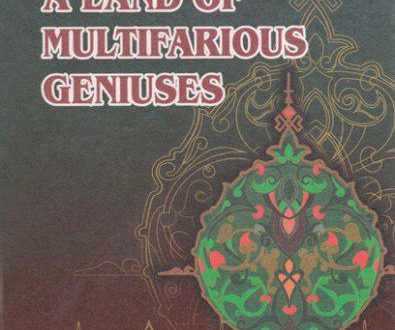At the end of the 10th century and the beginning of the 11th century, Khoresm’s fame and glory began to spread throughout the East and the West. During this period, such great scholars and geniuses as Muhammad Musa al-Khoresmi, Abu Rayhan Beruni, Abu Ali ibn Sina (Avicenna), Muhammad az-Zamakhshari, etc., whose lives and careers were closely connected with the land of Khoresm, lived there and created their incomparable and invaluable scientific and educational heritage. With their incomparable and noteworthy contribution to the science and culture of the world, they made it possible to establish close cultural connections with the other countries of the East. Mutual collaboration in these fields was beneficial for both parties and they enjoyed their mutual relations.
According to the information provided by the written sources, at this period of time a great number of scholars and representatives of the learned people of Khoresm lived and created original works of high appreciation in different ‘countries of the East. At the same time, the representatives of scientific schools of the East carried out their scientific activities effectively in Khoresm, which was one of the scientific and cultural centres of Maveraunnahr at that time. These scientific relations and collaboration in the fields of education have not been investigated well enough yet.
Much information about the scientific and cultural relations of the East and Khoresm is provided in the written sources, especially in Arabic and Persian literature. The study of these collaborations between Central Asian and eastern countries in different fields of science and culture helps us to develop our imaginations of them. From this point of view, we would like to draw our attention to the story about the life and literary career of the poet and literary man Rashiduddin al-Vatvot of Balkh, one of the representatives of Khoresm School of science and education who lived and created his works in Khoresm.
His full name was Rashiduddin Muhammad ibn Abdujalil al-Umariy but he is known by the name of Rashiduddin al-Vatvot.
Though some sources mention that Rashiduddin al-Vatvot was born in 1114 in Balkh, in other sources the date of birth of Rashiduddin al-Vatvot is shown to be either 1087 or 1094. At that time, Balkh was one of the most civilized centres of Khorasan and it could compete with such cities of the East as Nishapur, Herat and Marv. There were a number of madrasahs, mosques and libraries in different corners of the city where the leading scholars of the time were engaged in teaching religious and secular sciences,and disseminating the elements of science, education and culture among the seekers of knowledge and education. We do not have enough information about the early years of life of Rashiduddin al-Vatvot but taking into consideration the cultural environment established in Balkh, we can say that his youth was spent in famous madrasahs of the city. We have information at our disposal that he studied at the famous Nizamiya Madrasah in Balkh. Abu Said al-Hiravi, one of the estimated teachers who taught him at this madrasah, made a noticeable impression on him. The sources inform us that the whole life and literary career of Rashiduddin al-Vatvot was closely connected with the personality of al-Hiravi. Al-Hiravi was an expert who highly appreciated the ability and level of knowledge of Rashiduddin al-Vatvot.
Rashiduddin al-Vatvot came back to Khoresm after graduating his studies at the Nizamiya Madrasah in Balkh. His time of arrival to Khoresm is not clear yet but he is supposed to have come there approximately in 1150-1152 when he was 30-35 years old. Some sources say that Rashiduddin al-Vatvot lived there for 30 years. As soon as he arrived in Khoresm, he was summoned to the court of the ruler of Khoresm Atsiz. He was admitted to the service in the royal court and became one of the closest friends of the ruler Atsiz. He could reach such a high level of respect and estimation at the court thanks to his creative experiences, good knowledge in the Arabic and Persian languages and secretarial art.
Of course, at those times the fate of any poet, writer or a secretary was closely connected with the court and court affairs. Therefore, Rashiduddin al-Vatvot’s about thirty years of life was spent in the court of the rulers of Khoresm, first under the rule of Atsiz, then the rule of his son Iyl Arslan and later the rule of his son Alauddin Tekish. He worked there at the position of “katibu-1-insha” (head secretary) of the court office. He could earn such a high authority and respect thanks to his knowledge and ability in mastering the style of “nasri saj” which was widely used in the correspondences between the rulers of that time. Describing the abilities and knowledge of Rashiduddin al-Vatvot, a scholar Yaqut al-Hamavi wrote the following lines: “He was a representative of rarely seen and interesting people of his time. He was marvellous and a leading learned and most educated person in the field of prose and poetry”.
One of the famous works written by Rashiduddin al-Vatvot was his “Collection of letters” which contained precious and important information about the political and social problems of the time, for instance, the permanent attacks of the nomadic Turks called by Rashiduddin al-Vatvot as “al-al-kufr” (faithless) to Khoresm, the political situation in this area, the climate of Khoresm with its special characteristic features — cold winters and hot summers, the life in madrasahs and the system of education in them,debates organized in the scientific circles, etc.
Our story about one of the estimated figures in the field of science and education of Khoresm Rashiduddin al-Vatvot may be concluded with the opinion that his activity in the fields of prose and poetry was very fruitful. The study of his heritage will be useful and a worthy contribution to the study of the history of Khoresm which was one of the highly developed area of Maveraunnahr in the Middle Ages.
 Imom Buxoriy xalqaro ilmiy-tadqiqot markazi bukhari.uz
Imom Buxoriy xalqaro ilmiy-tadqiqot markazi bukhari.uz











